Speaking to the elected candidates for the 10th Iranian Parliament, who had gathered together on Saturday morning with the aim of explaining the requirements of legislation in the new era, Iranian Foreign Minister Mohammad Javad Zarif deemed foreign policy as a national and non-partisan issue stating “our view of the requirements of foreign policy and sovereign and dignified presence in the world is based on the principle that the country’s foreign policy should only serve national interests at regional and international levels.”
“For the reason, the Leader himself remains at the helm of outlining foreign policy as his prominent role is quite evident as we are committed to his commands and comments,” he added.
Zarif noted “in order to properly conduct foreign policy, we require empathy and cooperation among all organizations.”
“Hereby, I feel obliged to thank the ninth Parliament for the critical role it played in advancing foreign policy goals which brought about the possibility of progress the important case if the JCPOA,” he continued.
The Iranian FM further urged the newly-elected candidates to assist the Foreign Ministry in foreign policy issues.
Iran’s Zarif further pointed to different ways of exercising power and influence in the world including public diplomacy asserting “we could also show more power through parliamentary diplomacy; therefore, the first scope of our cooperation with the new parliament pertains to parliamentary diplomacy and friendship groups as well as active participation of the Iranian Parliament in International arenas.”
“We need to be integrated and consistent in the face of foreigners; an issue which highlights the importance of consultation with the Parliament in the field of foreign policy,” stressed the official underlining “points raised in the international arena must not lead to internal conflicts.”
Mohammad Javad Zarif later announced two serious priorities of the Foreign Ministry in the days and months ahead as ensuring proper implementation of the JCPOA by Westerners and well as coordinated confrontation with the threats of terrorism and extremism; “JCPOA was a historical necessity and was led by the Leader in special conditions of the country and no agent in the world would claim that Iran has suffered a loss in the nuclear deal.”
Iranian FM went on to touch upon what he called the Special conditions of the country before the JCPOA enumerating various difficulties felt due to sanctions including oil sale and money transmission restrictions; “meanwhile, the South Korean president traveled to Iran accompanied by 240 Korean firms with 25 million dollars of finance though several other states had previously visited Iran with billion-dollar plans to participate in the country.”
“The Central Bank of Iran and Foreign Ministry are responsible for exerting pressure for the implementation of the other side’s commitments,” said FM Zarif.
The official further added “our enemies, especially the Zionists are desperately seeking to induce unsafe conditions in Iran and to deter foreign investors from participating in Iran; consequently, we must promote the fact that Iran is the safest and most profitable country for investment regardless of differences in views.”
“We are not seeking war with any country and we loudly declare that no individual or country has the right to comment of our defense program,” he added.
FM Zarif also referred to the regional issues and the concerns of Iran over regional security; “the fact is that the sanctions against the Islamic Republic of Iran have been lifted paving the path for more active participation in the region; though many groups, which were advancing their misguided policies in the light of Iranophobia, are not content with the new situation and try to introduce Iran as a threat.”
“The reality is that the Arab world is being threatened by extremism while some Arab states are constantly trying to turn the threat into a contrast between Shia and Sunni or Iran and Arab rather than dealing with the risk,” emphasized the official.
“The Islamic Republic of Iran needs to carry the delicate task of preventing the formation of new Iraophobia thoughts," said Zarif, asserting “we need to simultaneously confront Iranophobia and extremism.”
The Iranian foreign minister deemed Iran’s strong presence in the region as the first prerequisite to this end saying “furthermore, active regional diplomacy to create security and stability in the region needs to be put on the agenda.”
“Also, we need to reveal the policies of the rulers of the region, particularly Saudis as measure which needs to be taken with seriousness and prudence since it is linked with national security,” he highlighted.
Iran’s foreign minister expressed hope that the next parliament will be successful in advancing the goals of the Leader and the nation in order to improving people's livelihood.
HA/3618153


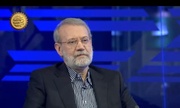
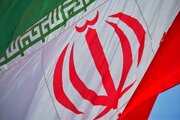
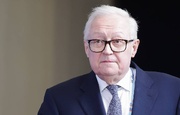
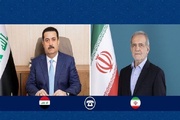
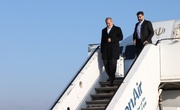
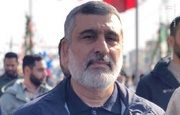
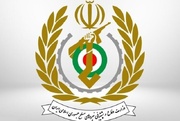
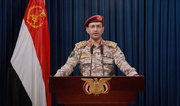
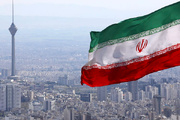
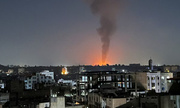
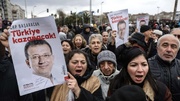
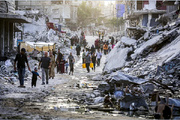

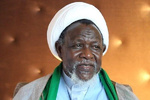
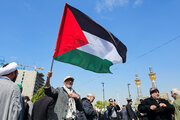
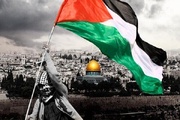
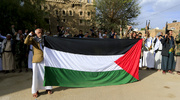
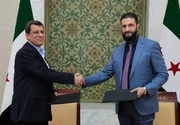
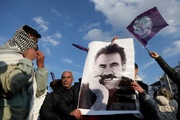
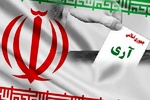
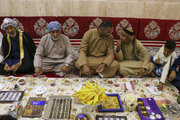
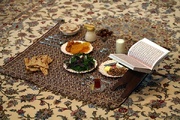
Your Comment